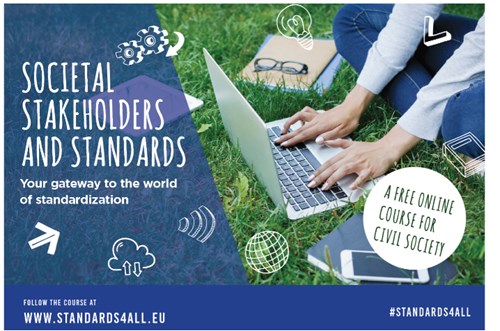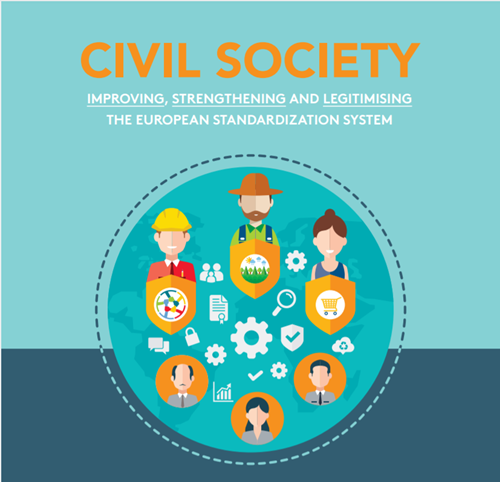Societal Stakeholders
Standardization and societal stakeholders
European Standards are relevant to many aspects of our daily lives. They play an important role, alongside regulation, in protecting the environment, enhancing safety as well as the health and well-being of consumers and employees. When products and services conform to European Standards, this means that standards are safe, reliable and of good quality.
You can participate
Did you know ?
Did you know that stakeholders like you can contribute to the development of European Standards? And that they benefit from this direct contribution?
Standards are created by bringing together the experience and expertise of different stakeholders such as the producers, sellers, buyers, users and regulators of a particular material, product, process or service. These stakeholders are represented by business and industry associations, public authorities, professional bodies, trade associations, consumer organizations, environmental organizations, trade unions, enforcement bodies, testing and inspection bodies, etc.
A diverse participation from all sectors of society gives standards users confidence that standards reflect not only the scientific and technical state of the art, but that they also take into consideration the concerns and priorities of wider society.
Businesses also benefit from having access to standards that take into account the concerns and priorities of societal stakeholders, as they help ensure products and services are developed and delivered in line with market expectations, the health and safety of workers is safeguarded, and environmental protection is maximized.
Get involved in European Standardization
The participation of societal stakeholders in European standardization is supported by dedicated European associations, whose roles are acknowledged by the EU Regulation 1025/2012 on European Standardization. Societal interests are represented for:
- Consumers by ANEC - the European consumer voice in standardisation
- Employees and workers by ETUC – European Trade Union Confederation
- Environment by ECOS – Environmental Coalition on Standards
Build your expertise, increase your knowledge and influence!
eLearning course for Societal Stakeholders
CEN and CENELEC joined forces with with ANEC - the European consumer voice in standardisation, ETUC – European Trade Union Confederation and ECOS – Environmental Coalition on Standards, to develop a free, interactive eLearning course that gives clear and straightforward information about standards and the standardization process in Europe, as well as at the national and international levels.
The course contains several modules to help users learn about standards, their development and the key role they play in protecting consumers, workers and the environment. It further demonstrates the importance for civil society to engage in standardization in order to improve, strengthen and add legitimacy to the European Standardization System.
If you want to discover the world of standards, this training is for you! Follow our course and find out why standards are relevant to you, and how you can participate in developing standards that benefit all!
Tools for Societal Stakeholders in Standardization
The European Standardization Organizations CEN and CENELEC provide a range of supporting tools for societal stakeholders tailored to their specific interests. These tools are publicly available so that anyone who is interested can learn more about standards and keep up to date with the latest standardization activities being coordinated by CEN and CENELEC.
Discover the world of Standards through a free & interactive online course !
Find more about European Standards
More and detailed information under our section about European standards
Check out our FAQs section
Ever wonder how Civil Society contribute to standardization?

